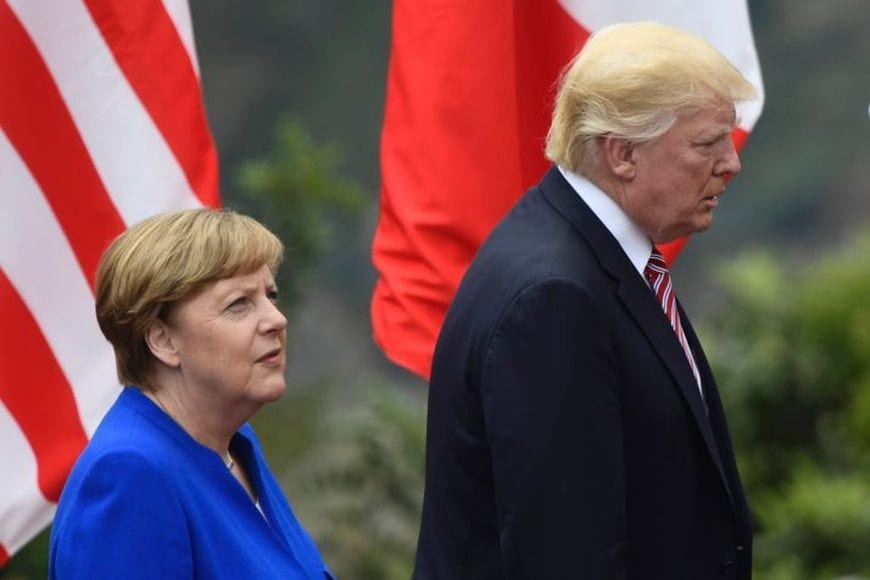Germany, as the largest European economy, accounts for almost one-quarter of EU’s production and consumption. In itself, it is a fact that should threaten anyone, but the breakdown of Germany’s economy leaves a lot to be desired.
The trade surplus with the United States alone is $64.2 billion in 2017. Compared with total American exports to European Union, which was $283.5 billion, the number is staggering. What is even worse is that the rest of the EU has a trade deficit with Germany amounting to $164.4 billion. This situation is unsustainable in the long run because large trade deficits are in essence a wealth transfer from Europe and America to Germany.
Berlin has been focusing on the export-driven economy for a while now. Its exports constitute almost 50% of the country’s GDP. For comparison sake, the United States’ exports account for just 14% of GDP.

The change to Germany’s economic policies is long overdue. Instead of insisting solely on export, it should focus on increasing domestic consumption, which would allow both its industry and its trade partners to sell more goods on Germany’s market. So far, nobody has challenged this situation, neither France (with a trade deficit between $36 and $41 billion each year, nor the rest of Europe.
Obama’s administration has tried to get Germany to give up its austerity policy, which only strangled already stretched thin European economies. The proposition was promptly rejected by Berlin. Current administrations have gone the other route, by threating to impose tariffs on all European goods, in order to curb the growing trade deficit. On top of that, Washington is also picking up the tab for NATO defense spending, something its European allies have been very reluctant to do. However, the tariffs are also a wrong method and won’t bring the desired results. Instead, an open dialogue must be started, with clear intentions of making Europeans aware that their large trade deficit is hurting U.S. economy and it must be reduced. With tariffs, Washington is on track to repeat the same mistake it made with China. Here, the trade deficit is even worse, amounting to $595.4 billion. The American administration decided to tackle the problem by slapping import tariffs on Chinese goods, leaving Beijing no choice but to respond in kind. Trump’s decision to invoke tariffs will only serve to alienate China even more, despite the praises he has been heaping on President Xi Jinping.
U.S. position on trade deficit is largely unassailable, yet the tactics employed by the American government are ineffective. The NATO summit next month will be an excellent opportunity to settle, or at least open a dialogue, about these grievances, yet there are slim chances of that happening. The last chance to negotiate a deal on the highest political level may very well be lost. After that, trans-Atlantic relations can easily slip into an open trade war.
Source: cnbc.com

